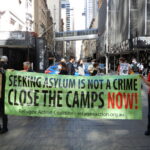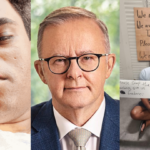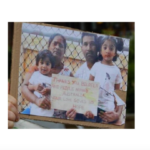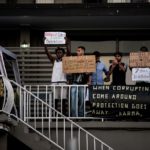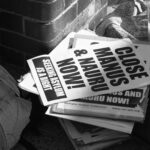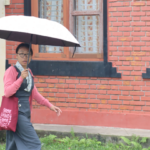Government Continues Callous Mistreatment of Refugees, Despite Community Embrace
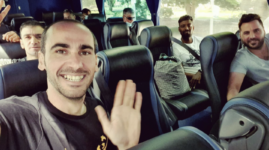
Mostafa Azimitabar has been announced a finalist in this year’s Art Gallery of NSW Sulman Prize. And this is following the Kurdish refugee, who spent seven years detained by our government on Manus Island, having succeed in making it as a finalist in last year’s Archibald Prize.
Indeed, 37-year-old Azimitabar, who’s been living in the Australian community since January 2021, is even the subject of a painting that’s been shortlisted for this year’s most prestigious portrait prize as well.
This embracing of Moz, as he’s known to friends, by the nation’s art community highlights the broader welcoming of refugees on the part of the majority of Australians – even those who’ve come by boat – once they’re living amongst us, and not being demonised and secreted away on an island.
However, Moz is one of thousands of refugees living here on temporary visas, who the Albanese government determined not to provide permanent protection to in February, when it granted permanent visas to 19,000 refugees from amongst 31,000 individuals known as the legacy caseload.
This seemingly arbitrary decision not to extend ongoing protection to Moz reveals the callousness in the government’s immigration system, as he and the others denied permanency whilst living in the community obviously pose it no threat, despite the authorities’ best efforts to insist they do.
And Moz’s case further shines a light on another immigration system fallacy that’s propagated by both sides of government, which posits that the harsh regime cannot be dismantled as it would be election suicide, because those same voters have no real problem with refugees living next door.
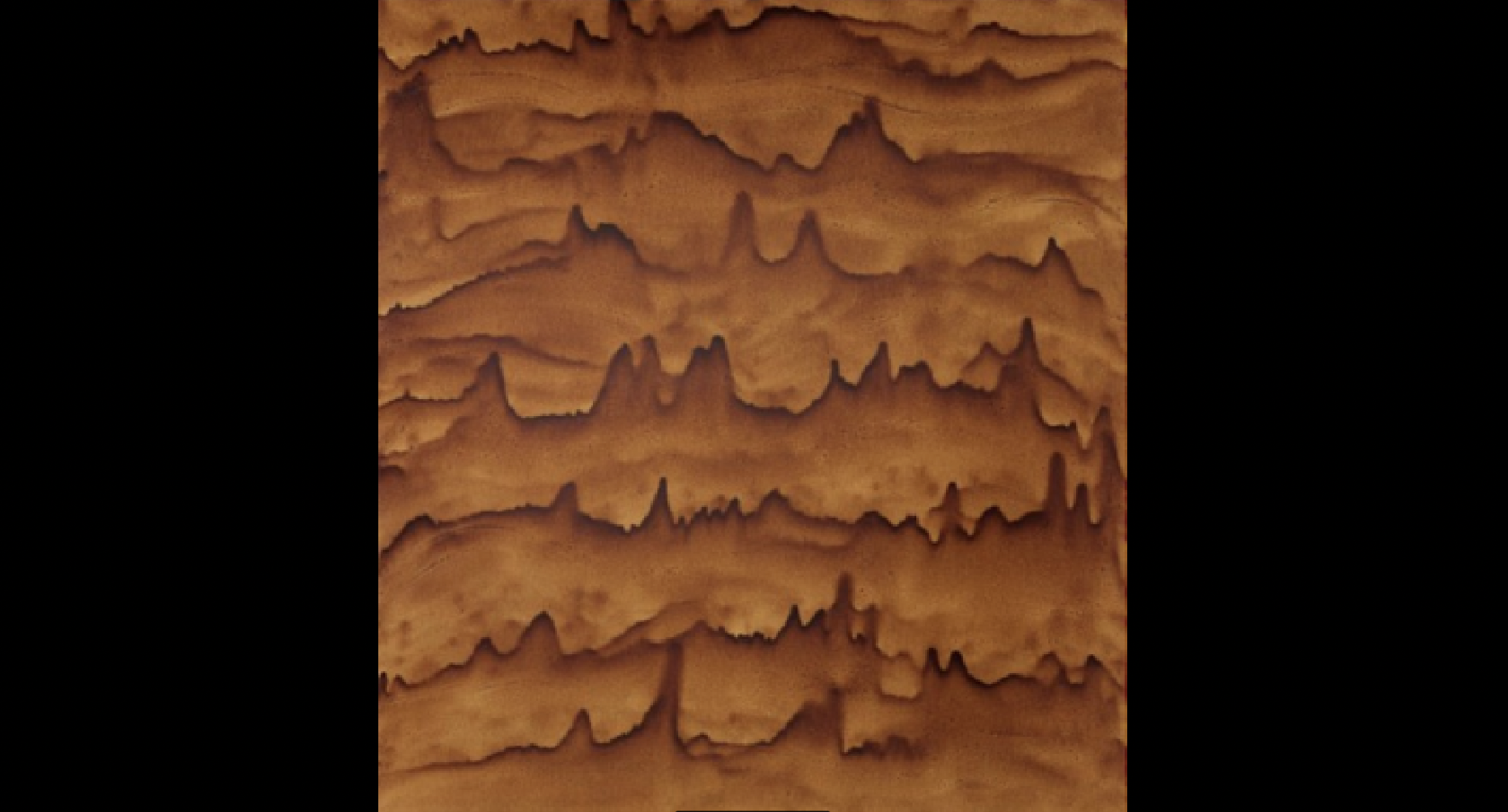
Adding to the community
“I’m a finalist of Sulman prize 2023. Also, I’m a subject in Archibald Prize 2023,” said Moz, who arrived in Australian waters a decade ago, after having fled persecution in Iran. “Last year the story of my Archibald self-portrait went through the world, even to my dad in Kurdistan”.
“I’m using this technique to challenge racism and wrong politics,” explained the refugee, in relation to his piece that’s just been shortlisted for the Sulman, titled No Friends But the Mountains.
“I need to connect people to the story of offshore detention on Manus, of art with only coffee and a toothbrush”.
Moz was amongst 180-odd refugees transferred to Australia for necessitated medical treatment that wasn’t available in their island gulags, following since-revoked medevac laws having been passed by the rest of parliament in February 2019, to the chagrin of the Morrison government.
After years of what consisted of torture in offshore detention, the refugees transferred under these laws were then promptly detained in hotels across the country, without even receiving the healthcare they came for.
In fact, Moz spent 14 months locked up in hotels in Melbourne prior to his release, despite his having held legitimate refugee status long before he was released from Manus Island detention centre.
And whilst detained inside the Mantra Hotel in 2020, Azimitabar told Sydney Criminal Lawyers over the phone that then immigration minister Alan Tudge wouldn’t allow them into the community, even though each transferee had “undergone extensive background and criminal checks”.
But now Moz is living in the community and obviously enhancing it, as is his fellow Manus and Mantra Hotel detainee Farhad Bandesh, who, on release into the community, has started his own wine label. Yet, both these men continue to be denied permanency by Albanese.
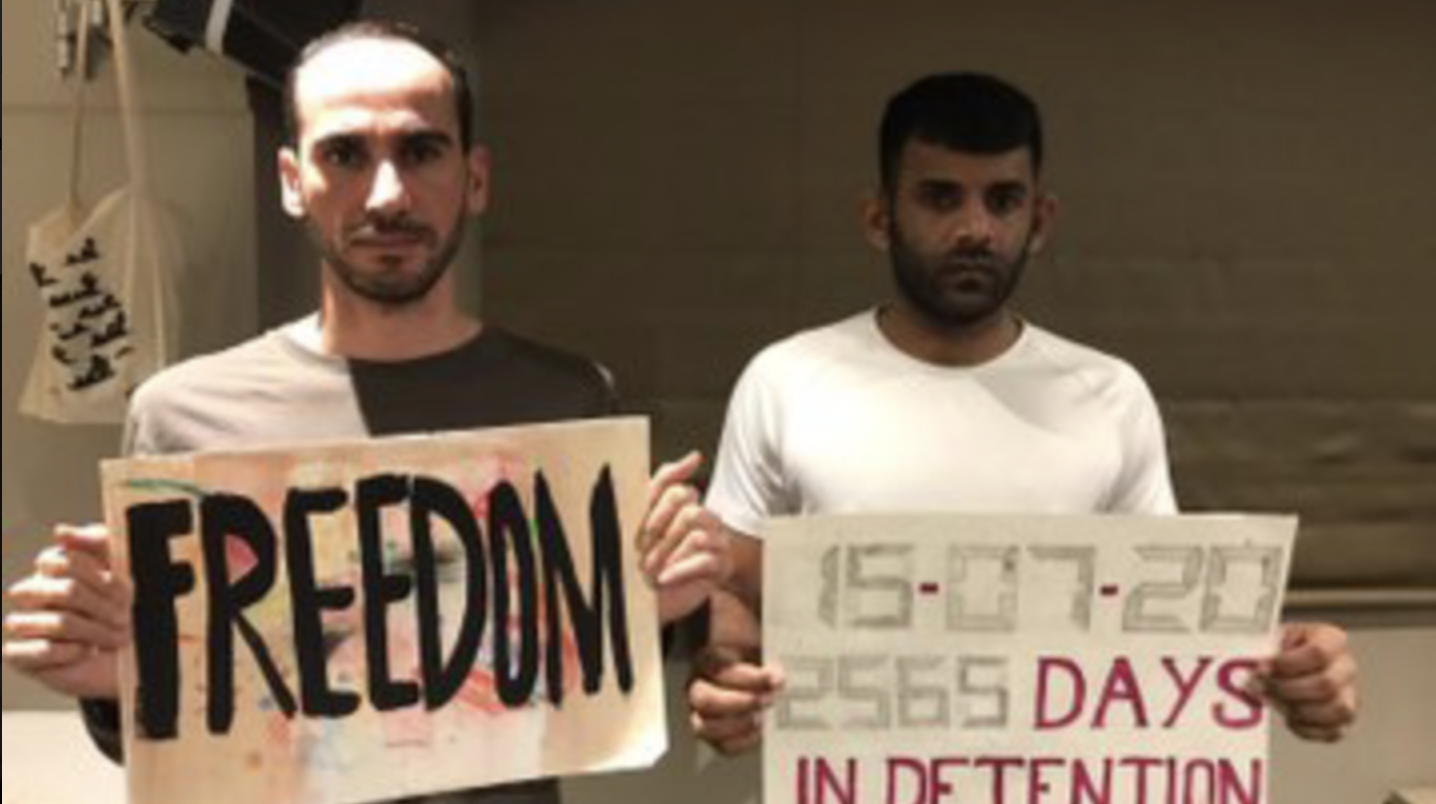
Process as punishment
Refugee Action Coalition (RAC) spokesperson Ian Rintoul explained that while Labor extended permanent protection to 19,000 refugees living in the community, it didn’t abolish temporary visas, as promised pre-election, which has left 12,000 living here denied permanency.
“There are 19,000 people who were found to be refugees getting permanent visas and 10,000 rejected, while 2,000 are waiting on a decision,” the advocate told SCL. “Plus, there are 2,000 more from Manus and Nauru, who are still being told they will never be settled in Australia.”
The 10,000 refugees that haven’t been provided with legitimate refugee status were denied it under the dodgy fast-track scheme introduced by then immigration minister Scott Morrison in 2014, Rintoul continued, and he added that Labor has promised to abolish fast track but is yet to.
Fast track processing applies to asylum seekers having arrived by boat between August 2012 and January 2014 that weren’t arbitrarily sent into offshore detention. And the issue with this system is it provided a long list of questionable reasons as to why these people might be rejected such status.
Rintoul further explained that there are an additional 2,000 refugees, classed as “transitory persons” living here, who’d been transferred from offshore detention temporarily, and are continuing to be denied permanent protection.
This includes the Medevac cohort, with Moz and Farhad amongst them.
Maintaining fortress Australia
Australia’s mistreatment of asylum seekers arriving by boat is notorious the world over. And it impresses strongmen rulers, due to its cruelty and barbarity.
In February 2019, all the remaining child detainees were removed from Nauru, following a successful civil society campaign that highlighted around 30 kids had developed resignation syndrome, a rare psychological condition, while many more, some as young as 10, had attempted suicide.
Following his treatment in detention, Azimitabar took the government to the Federal Court last July, seeking compensation for the 14 months he was detained in two hotels in Melbourne, which his legal team claimed was illegal. And Moz is currently waiting for that determination.
However, despite the community outcry over the hotel detentions, as well as the international attention it garnered during the Djokovic visa saga, the Albanese government is continuing to detain refugees transferred from Nauru for medical treatment in hotels for prolonged periods.
RAC confirmed on Wednesday that 20 former offshore detainees from Nauru are currently being warehoused at Brisbane’s Meriton Hotel, with one of these individuals having been kept inside the makeshift prison for 3 months now.
And offshore detention continues as well. Within a month of taking on the role of foreign minister, Penny Wong was over in New Zealand confirming that the immigration processing centre on Nauru would be maintained, with this designation being belatedly extended for a decade in February.
Right now, there are 35 offshore detainees still held on Nauru a decade on, as well as 88 in Papua New Guinea. SCL was in touch with two of those remaining on Nauru, who’d sewn their lips together and went on hunger strike for days on end in February. And they were eventually brought here.
So, the message is clear: the Albanese government is keeping the remaining offshore detainees on the soil of poor nations to act as scarecrows, deterring other desperate people seeking help, and if they want off their island prisons after 10 years, they need to near kill themselves to achieve this.


